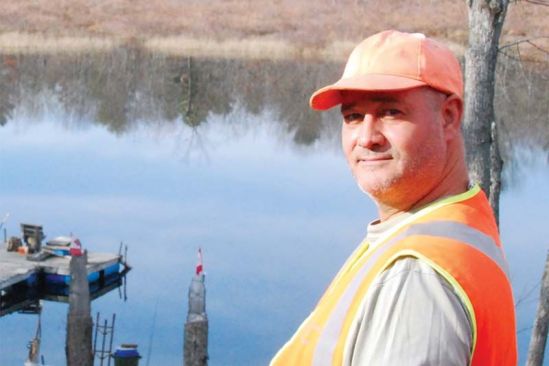Jeff Green | May 10, 2017
The coroners inquest into the death of Robert Srigley took place two weeks ago in Sharbot Lake. It finally revealing some of the details around the sequence of events that led to his death. The jury that heard all the evidence will be submitting its report, with recommendations aimed at preventing similar deaths in the future.
At the time, I wrote that there are some unanswered questions about the case that the public has a right to know. One was what happened when the police arrived, and the second was why only uniformed police responded to what was clearly a mental health crisis for a man who was known to hate the police.
On the whole, the inquest answered those questions. Essentially, when police called out his name, Mr. Srigley ran out of his trailer, picked up what looked like a hunting rifle and aimed it at them. And they shot him. Did they need to shoot him as often as they did? Why did so many of the bullets hit him in the back? These questions were not completely answered, but it was clear the officers who shot him did so to protect each other from a viable threat to their lives. Police are trained to shoot until there is no more threat to themselves or the public, and in an incident that unfolded in seconds it is hard to sit in judgement of the police officer who was in that situation after the fact. And the police testimony at the hearing was credible, and at times poignant.
Police also answered the question about mental health workers, by saying that when there is an incident like this where there is a potential for danger, only they are trained to handle the situation. A mental health worker or team could have been with them as backup but not at the scene. Given the description of events, this is also a credible answer to that question.
From the testimony of Srigley's brother and the one officer on the scene who had met and dealt with him before, it was clear Mr. Srigley was known to social services and mental health services in the region, and going back many years in other locations. Much can be said about the inadequacies of the system, in relation to him, but on that day in July it was too late to address those problems. Mr. Srigley's circumstances had deteriorated to a point of no return and he met a tragic end at the hands of police officers who were doing their job.
But that does not mean that the coroner's inquest was a wholly satisfactory airing of the issues. The first thing I noticed about the inquest was the role of the counsel to the coroner. Since I have never covered an inquest before I can't say if this one was conducted in the normal way, but to my view the counsel, Peter Blaine, was framing a narrative about what happened right from the start and no one challenged that narrative. He had gone through all the reports, knew much of what each witness was going to say, and asked leading questions on a number of occasions, and seemed to be trying to do the jury’s work for them at times, even suggesting wording for the jury to consider in their report and recommendations.
For example, during the testimony of one of the paramadics who attended at the scene shooting and remained with Srigley until they reached the hospital in Napanee, Blaine asked a leading question. “Did Mr. Srigley say anything about wanting to die during that time. The paramedic said “no, I did not hear him say anything about that” and then Blaine went further. He said that sometimes people who are involved in an intense effort such as attending to gunshot wounds “are so fixated on what they are doing they don't see or hear anything else.”
“I did not hear him say anything about wanting to die” the Paramedic repeated. When the other paramedic, who drove the ambulance, took the stand, Blaine asked him if he heard Srigley say anything about wanting to die. He said he did not hear much, except “you guys are lousy shots”.
Later in the hearing, at least two of the police officers who testified recalled Srigley saying “just shoot me now” and “I want to die”. As I said before they were very credible witnesses whose accounts were pretty consistent with each others. But why did Mr. Blaine, whose job is to present the facts of the case to the jury, repeatedly push this line. Indeed, he seemed to be pushing pretty hard on a “suicide by police” theory.
Although the OPP and the OPP Officers Association were represented by lawyers at the hearing, the Srigley family was not. There was no one trying to tease out any details to challenge the dominant narrative, no one poking at any of the loose ends in the testimony
This was not a criminal trial, and was not intended to be a confrontational process, but the supporting witnesses who were called in to explain OPP initiatives as regards mental health and the general tone of the questioning by Mr. Blaine suggested an attempt to make sure that, in the end, the entire matter can be filed away neatly in some cabinet somewhere, never to be referred to again.
More Stories
- The Sun Shines On The Parham Fair
- Creating Your Own Weather, Forever and Ever
- Silver Lake Pow Wow Set For A Big Year
- South Frontenac Receives Substantial Provincial Grant for their Verona Housing Project
- South Frontenac Council Report - August 12
- Dumping To Be Curtailed At Loughborough Waste Site
- Central Frontenac Inching Towards Increasing Severance Opportunities
- Addington Highlands Council Report - August 12
- Addington Highlands Council Report - August 5
- Addington Highlands Council Report - August 12

